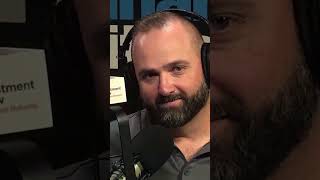The Income Generation With David J. Scranton
I’ll be sitting down for a little QA during the news and views segment for a conversation discussing the investor is most affected by corporate myopia and even those who stand to benefit the most we can’t really change what’s going on in corporate boardrooms and corner offices, but we can change what we do to benefit from their decisions. Now I want to be fair, most heads of corporations are under immense investor pressure a bright spotlight has been put on stock market value so managers who don’t excel under these tests tend to wash out. That is to say, a manager who gives up short-term gain for long-term results may simply find himself out of a job. It’s the tortoise and the hare story only with chief executives and the tortoise gets fired partway through the race. Think for a moment about how it got this way. In 1792 when stocks were first traded on the New York Stock Exchange, few people were trying to build wealth by focusing on the business of others. They were focused on their own businesses, family farm or their jobs. Information moved at a slow pace almost unfathomable today. The fastest transfer of information was word of mouth, followed by letters delivered by rudimentary postal service. And for those who can get their hands on a newspaper, they saw only whatever the printer deemed worthwhile, business information wasn’t at the top of that list. Even a century and a half later, and with the advent of telephones, radio and television, the news reports were not about the stock market. This allowed room for managers back then to manage the business with the goal of long-term growth and to maximize return on the resources. It’s only been the last 40 years or so that technology and information has changed that focus. Today even the average person is aware at some level of what the stock market’s doing day by day. It was in the 1970s when people begin paying more attention to the markets in part because traditional pension plans are being replaced by 401K plans and the introduction of mutual funds allowed easier access to, many markets.For many years now I’ve been writing a monthly newsletter article for my client. A few years ago in that newsletter, I wrote that,: I believe we’ve entered a new age of uncertainty with our economy and financial markets. I still believe that to be true. In the wake of the 2007 financial crisis, we’ve seen a lot of historic first take place from record market highs to record unemployment numbers. Some of these first have been planned and intentional, but others have been surprises. It seems that the only real certainty has been uncertainty. I mentioned this now because I believe the turmoil, we’ve been seeing in the financial markets since the beginning of this year is another byproduct of this new age of economic uncertainty. I also believe that could eventually lead to another historic first which is this an economic recession actually caused by the stock market collapse. Now if that sounds backward there’s a good reason, it’s because it is backward. Normally historically the market reacts to economic ups and downs. It doesn’t normally dictate them. However, a market crash is one possible result of the recession, but not typically its primary cause but in the age of economic uncertainty, we may see a case where the tail wags the dog for the very first time. **Disclaimer: Sound Income Strategies, LLC is a registered investment advisor. Information presented is for educational purposes only and does not intend to make an offer or solicitation for the sale or purchase of any specific securities, investments, or investment strategies. Investments involve risk and, unless otherwise stated, are not guaranteed. Past performance is not an indication of future results. Be sure to first consult with a qualified financial advisor or tax professional about your specific financial situation before implementing any strategy discussed herein. |
Tags:




































